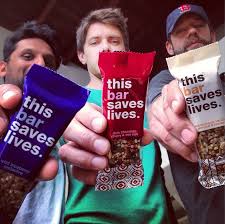Home
About Us
Shared Instrumentation Grant Program
by: Iola BonggayThe National Institutes of Health, otherwise known as NIH, is an independent agency operating within the United States Department of Health and Human services that is primarily responsible for pursuing most of the country's biomedical and health-related research studies.
|
|
The mission of the NIH has always been to "seek fundamental knowledge about the nature and behavior of living systems and the application of that knowledge to enhance health, lengthen life, and reduce the burdens of illness and disability."
In an effort to contribute to the realization of this mission, the National Institutes of Health has recently established the Shared Instrumentation Grant Program wherein they intend to solicit applications from NIH-supported research proposing to upgrade or purchase a single piece of expensive instrumentation (useful to the field of science and technology) that at a minimum costs $100,000.
Initially, this program seeks to support the National Center for Research Resources(NCRR) Shared Instrumentation Grant(SIG) Program. The project looks to provide funds to enable NIH-recognized institutions to purchase rather expensive research instruments that can only be justified on a shared-use basis and that are needed for NIH-supported projects in translational, basic, or clinical areas.
(continued...)
Shared Instrumentation Grant Program
Page 2
About The Author
Iola Bonggay is an editor of TopGovernmentGrants.com one the the most comprehensive Websites offering information on government grants and federal government programs. She also maintains Websites providing resources on environmental grants and grants for youth programs. |
Additional Resources
category - Health Grants
National Science Foundation's Smart Health and Wellbeing Program
Department of Agriculture: Value Added Producer Grants
Child Health Research Career Development Award Program
Combating Autism Act Initiative: National Interdisciplinary Training Resource Center Program
Follow @topgovtgrant
Social Entrepreneurship
Spotlight
A Bar That Saves Children’s Lives

Ryan Devlin, Todd Grinnell and Ravi Patel have traveled to Africa on a humanitarian trip a few years back, encountering children suffering from severe malnutrition get healthy through Plumpy’Nut®.
